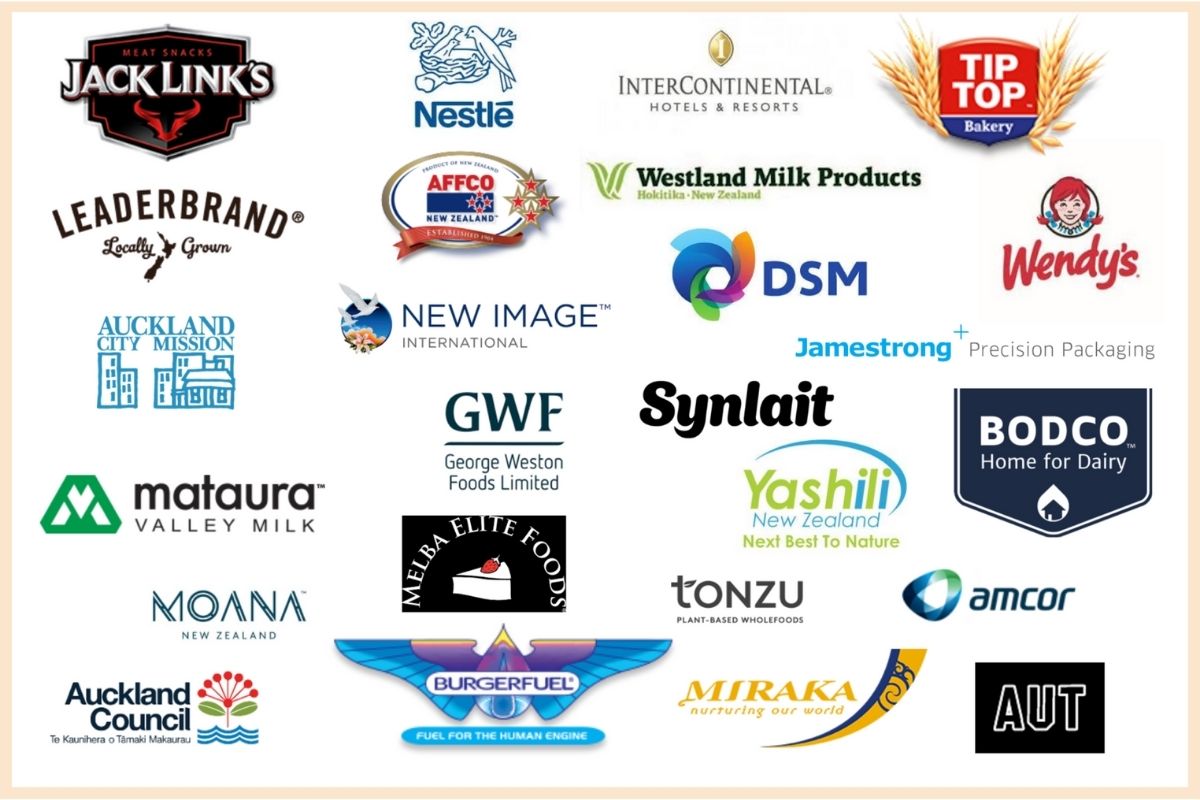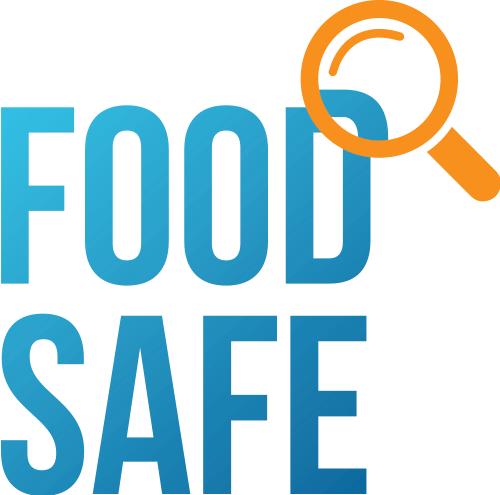Halal Training for QA officers, quality and technical managers, and QC team to meet requirements for MPI Halal Export Notice under the Animal Products Act.
Course Cost: POA
About our Halal Training Course
Food Safe offers Halal Training including the following NZQA unit standards:
- 25924: Demonstrate knowledge of audit requirements in the certification of Halal food and food products
- 25926: Describe Shariah in the production and certification of halal food and food products
- 29088: Produce Halal dairy products
Other unit standards include: 26025 and 21623
- Course duration: 1-day
- Delivery options: LIVE Online via Zoom or in-person at company site
- Training by: Qualified ISO 22000 & 9001 Lead Food Safety Auditor
- Provider Quality Assurance: NZQA-registered PTE
- Our Practical, Inclusive Approach:
✅ Easy-to-follow for both Muslim and non-Muslim learners
✅ Job-focused skills you can apply immediately
Learners gain:
✅ NZQA Unit Standard Certificate of Achievement ( as applicable)
Halal Awareness & Audit Training
Level 4, NZQA Unit Standard 25924
This course is for learners:
- Involved in the processing or production of food or packaging who are already halal certified or working towards achieving halal certification.
- Who are already familiar with, or need to become familiar with, the halal audit processes for certification.
Course Duration: 1 day
Unit & Credits: NZQA Unit 25924. Credits = 5, Level 4
Course topics:
- MPI Halal notices and requirements
- Overseas market access requirements – OMAR
- Global Halal market overview
- Halal food overview:
- Introduction to Islamic Shariah & Islamic concept of hygiene
- Islamic Shariah law and halal food requirements
- What is Haram and non-permissible food
- Halal food process, including people, products and process requirements
- Understand the purpose and scope of a halal audit, which includes:
- Features
- Reasons
- Scope
- Understand the halal audit process following Shariah, which includes:
- Entry meeting
- Techniques
- Exit meeting
- Understand halal food management, including:
- Quality assurance system
- Segregation of halal and non-halal products
- Traceability
- Management of non-halal ingredients and products
Halal Awareness & Dairy Audit Training
This course is for learners:
- Involved in the processing or production of dairy products who are already halal certified or working towards achieving halal certification.
- From the dairy sector who are already familiar with, or need to become familiar with, the halal dairy audit processes for certification.
Course Duration: 1 day
Units & Credits:
• NZQA Unit 25924. Credits = 5, Level 4
• NZQA Unit 29088. Credits =5, Level 4
Course topics:
- MPI Halal notices and requirements
- Overseas market access requirements – OMAR
- Global Halal market overview
- Halal food overview:
- Introduction to Islamic Shariah & Islamic concept of hygiene
- Islamic Shariah law and halal food requirements
- What is Haram and non-permissible food
- Halal food process, including people, products and process requirements
- Understand the purpose and scope of a halal audit, which includes:
- Features
- Reasons
- Scope
- Understand the halal audit process following Shariah, which includes:
- Entry meeting
- Techniques
- Exit meeting
- Understand halal food management, including:
- Quality assurance system
- Segregation of halal and non-halal products
- Traceability
- Management of non-halal ingredients and products
- Understand the preparation requirements to produce Halal dairy products, including:
- Dairy premises requirement in line with Animal Products Notice, General Export Requirements for Halal Dairy
- Halal quality assurance process
- Haram foods and Najasah substances
- Shariah Law requirements
- Handling, processing methods and product reclassification of Halal dairy products, including:
- Product handling in terms of Shariah Law
- Methods of preparing and processing raw materials for consumption by Muslim consumers
- Process to reclassify Halal dairy products as Haram
Halal Awareness & Audit Training
NZQA Halal Unit Standard 25926 – Level 3
This course is for learners:
- Involved in the processing or production of food or packaging who are already halal certified or working towards achieving halal certification.
- Who are already familiar with, or need to become familiar with, the halal audit processes and need to understand how Shariah is applied in the production and certification of halal food and products.
Course Duration: 1 day
Unit & Credits: NZQA Unit 25926. Credits = 5, Level 3
Course topics:
- MPI Halal notices and requirements
- Overseas market access requirements – OMAR
- Global Halal market overview
- How Shariah applies to the production and certification of halal food and food products,
- Origins within the Quran, which include the following:
- Hadith/Sunnah and Ijmaa
- Shariah in terms of its relationship to the People of the Book, which includes:
- Status of the People of the Book,
- Social tolerance
- Tolerance of animals slaughtered by others
- Understand madhab/madhhib in accordance with Shariah, including:
- Sunni (Hanafi, Maliki, Shafi’i, & Hanbali)
- Shiah (Jaafari)
- Abadia
- Origins of the madhab, including:
- Sunni (Hanafi, Maliki, Shafi’i, & Hanbali), Shiah (Jaafari) & Abadia
- Requirements and process for cleansing, including:
- Naiis mughallazah
- Naiis mukhaffafah
- Naiis mutawassitah (ainiah/hukmiah)
- Relationship between the production and certification of Halal food
- Impact of non-compliance with Shariah, including:
- Cancellation of contracts
- Return of the product
- Impact on Muslim consumers
- Impact on exports
- Effect of Haram food products on Halal food production process, including:
- Pork
- Alcohol,
- Food containing non-halal materials
- Materials hazardous to health
- Contaminated equipment
- Contaminated foods or food components,
- Animals that cannot provide halal products

Pre-requisites & essential information:
Learners must:
- Be employed in the industry to complete this course.
- Be 18 years or older to enrol.
- Be proficient in English – have a level of written and oral English equivalent to IELTS 5.5 or higher to be eligible.
- Language proficiency is exempt from enrolment, which has been organised and paid for by a New Zealand-based food company.
- Have a basic knowledge of Shariah requirements in the production and certification of Halal food and food products or packaging as part of their NP, Food Safety or Risk Management Programme, if booking unit standards 25924, 25926 or 29088.
- Be involved in the processing or production of dairy products that are already halal certified or working towards achieving halal certification, if booking dairy unit standard 29088.
Post-course workplace learning:
- Learners will be required to complete tasks in their workplace to achieve unit standard 29088.
- Learners will be provided with an observation checklist.
- Learners will be required to be observed completing these tasks on two separate occasions to ensure they meet the standard.
- An on-job verification by a workplace observer will be required to be submitted.
- The workplace observer can be:
- A QA, compliance or technical manager familiar with the company’s Halal system,
- A competent quality assurance officer accredited to this unit or
- A Halal assessor (Auditor) from the AHO who is responsible for the Halal certification of the company.
- The workplace observer can be:
Two observations and attestations are to be submitted within 10 weeks from the start date (Practical component for Dairy unit standard 29088).
Time-frame for completion
10 weeks from the course start date.
Suitable for
Halal Training for QA officers, quality and technical managers, and QC team to meet requirements for MPI Halal Export Notice under the Animal Products Act.
About your trainer
These Halal Training Courses are delivered by Food Safe’s Managing Director, Lead-trainer & Food Safety Expert, Keith Michael who holds:
- A Masters Degree in Operations Management
- 25+ Years of experience in Food Processing including projects in Australia, Africa, India, Middle-East and Indonesia
- 15+ Years in High-Compliance Manufacture & Auditing eg. Meat processing, Infant Formula & RMPs
- Technical Food Processing, Food Safety, and Audit Competencies
- Dairy Manufacturing: Technical & Specialised Operations
- Certificate in Company Direction from the Institute of Directors (IOD), New Zealand
Keith has presented papers at the Food Safety Conferences in 2019, 2020, and 2021 and bring this cross-sector learning into training.
Keith has many years of experience as a company director where he has assisted companies with Food Safety Compliance, Risk Audit, and closing of gaps identified with smart purpose-built competency training.
View Keith’s profile on LinkedIn.

Overview
What is Halal?
This video explains what the term Halal means:
Halal Terminology
Some Technical Halal Terminology
The slides below explain some Halal terms:
Halal Awareness Training
What is Halal Training – Halal & Sharia Definitions – Source: MPI
Abadia is one of the madhahib (Islamic schools of thought, singular=madhab).
Ainiah means visible.
Hadith is a record of the traditions, sayings, and actions of the Prophet Muhammad, messenger of Islam.
Halal allowable, permissible. In this context, this term refers to food and food products that are prepared in accordance with Shariah. Halal also refers to permissible actions in accordance with Shariah.
Hanafi is the oldest school of thought (madhab) within Sunni Islam after its founder Abu Hannifa an-Nu’man.
Hanbali a school of thought (madhab) within Sunni Islam, was started by students of Imam Ahmad bin Hanbal.
Haram prohibited food from any animal not prepared according to Shariah, as well as food and drinks that are not permissible in Islam, such as port and alcohol. Haram also refers to impermissible actions in accordance with Shariah.
Ijmaa consensus opinion of scholars.
Jaafari is a school of thought (madhab) within Shia Islam.
Maliki is a school of thought (madhab) in Sunni Islam, the third-largest, from the work of Imam Malik.
Madhab (plural-madhahib) – Islamic school of thought.
Naiis Hukmiah is invisible filth (refers to the level of hygiene)
Naiis Mughallazah is severe filth (refers to the level of hygiene)
Naiis Mukhaffafah light filth (refers to the level of hygiene)
Naiis Mutawassitah medium filth (refers to the level of hygiene)
People of the Book are Muslims, Christians, and Jews.
Quran holy book of Islam.
Shafi’i is a school of thought (madhab) in Sunni Islam, started by Imam ash-Shafi’i. Shariah – Islamic law.
Shia the second largest denomination of Islam.
Sunnah traditions, sayings, and actions of the Prophet Mohammed, messenger of Islam.
Sunni the largest denomination of Islam, also called Ahlus-Sunnah Wal Jama’aah.
Act means the Animal Products Act 1999
The accreditation body means the Joint Accreditation System of Australia and New Zealand (JAS-ANZ);
AP E-cert means the Animal Products Electronic Certification System specified for the raising and issuing of export declarations, halal certificates, official assurances, halal premises registration certificates, and transfer documents
Approved halal organization (AHO) means an Islamic organisation approved and listed by the Director-General under Part 6 of the Notice
Carrion means animal material or animal products derived from halal species that died before halal slaughter and have not undergone ante mortem and post mortem examination or haram species that died before slaughter
Certification services mean the activities undertaken by an approved halal organisation as part of their roles under the Notice
A competent halal slaughter person means a person who has met the halal competency criteria for a halal slaughter person under clause 8.2 of the Notice
Consignment means an identified lot or lots of animal material or animal products required to be described in a transfer document or export certificate
Eligible for export as halal means:
a) prior to export, that a consignment meets or is capable of meeting all applicable requirements in this Notice to be exported to its intended destination; or
b) at export, that a consignment meets all applicable requirements in this Notice to be exported to its intended destination
Food additive(s) has the same meaning as in Standard 1.3.1 of the Australia New Zealand Food Standards Code
Gelatine means a protein product prepared from animal skin, bone or other collagenous material, or any combination thereof
Halal animal material means animal material that is intended to be eligible for export as halal
Halal animal products means animal products that are intended to be eligible for export as halal
Halal certificate means a certificate issued by an issuing officer in accordance with Part 11 of the Notice
Halal identification means any label affixed to halal meat or meat products wrapping or packaging material which claims to be halal in any language
Halal export assurance system means the requirements in this Notice that specifically relates to the processing, storage and transport of halal meat, and includes any country-specific OMAR
Halal mark means:
a) the letter “H”; or
b) the logo specified in Annex 6, where a country-specific OMAR requires a logo
Halal official assurance means an official assurance with a halal attestation issued by the Director- General or an authorised person (the issuing of which replaces the need for a halal certificate to be given directly to the market to which this Notice applies)
Halal premises means premises that is listed by the Director-General under Part 4 of this Notice for the purposes of processing halal animal material and products
Halal premises of final control means the halal premises where a consignment of halal animal material or halal animal products is physically located before it is transferred for export
Halal premises registration certificate means the premises registration certificate with a 3 year period of validity, which is issued to the premises operator by the approved halal organisation immediately after his/her halal programme has been approved
Halal quality assurance officer means a person referred to in clause 4.8.2
Halal species means animals of the following species, other than in a wild state:
a) bovine; and
b) ovine; and
c) caprine; and
d) cervine; and
e) poultry;
and halal animal has a corresponding meaning
Haram material means anything that is derived from a haram species, and includes any substance containing material from haram species, alcohol beverages and other intoxicants, food containing alcohol, carrion. Haram product has a corresponding meaning
Haram species means:
a) porcine;
b) canine;
c) equusasinus (donkey);
d) wild animals;
e) animal which lives both on land and water; and
f) amphibians that are used as ingredients, additives or processing aids; and
g) where notified in a country-specific OMAR, insects and their extracts
Non-conforming halal animal material means any animal material derived from a halal species, which were intended to be or were processed as halal but were subsequently declared by an operator, an approved halal organisation, or an animal product officer to be non-compliant with the requirements of the Notice
Non-conforming halal animal product means any animal products derived from a halal species, which were intended to be or were processed as halal but were subsequently declared by an operator, an approved halal organisation, or an animal product officer to be non-compliant with the requirements of the Notice
Non-halal animal material means any animal material derived from a halal species that has been intentionally processed by the operator outside the scope of the Notice
Non-halal animal products means any animal products derived from a halal species that have been intentionally processed by the operator outside the scope of the Notice
OMAR means market access requirements issued under section 60 of the Act
Poultry means chicken, duck and turkey
Processing aid has the same meaning as in Standard 1.3.3 of the Australia New Zealand Food Standards Code
What is Halal Training
Reference Resources
Latest Report On The State Of The Global Islamic & Halal Economy
The Halal Food Handbook
How we go about recognizing a trainee’s current competency:
A sample of the unit standards offered to the meat sector:
Halal Training Courses
Halal Training Program – NZQA Unit Standards
Halal Auditor Training
Export Requirements for Halal Food Products
About Food Safe
Food Safe Ltd is Accredited by the New Zealand Government + is a Category 1 NZQA-Registered PTE. Training complies with the Food Safety Bylaws and Verifier Audits right across New Zealand.
Our food safety training is trusted by both well known New Zealand and Global food companies and heaps of small teams too!
Food Safe’s advisory committee includes leading university microbiology experts, operations, quality and compliance managers, and governance experts. For even more information about Food Safe and the companies we work with, click here
Why Choose us for your Training?
- Complements compliance requirements
- Is simplified and visual, and supportive of implementing learning back on-job
- Is delivered by a trained ISO 9001 & 22000 lead auditor
- Is delivered by a trainer with first-hand knowledge and experience in high compliance operations where Food Safe also operates, such as the dairy sector

120
427
100
How we work with companies
HOW IT WORKS: Steps to book your course
Companies we work with































